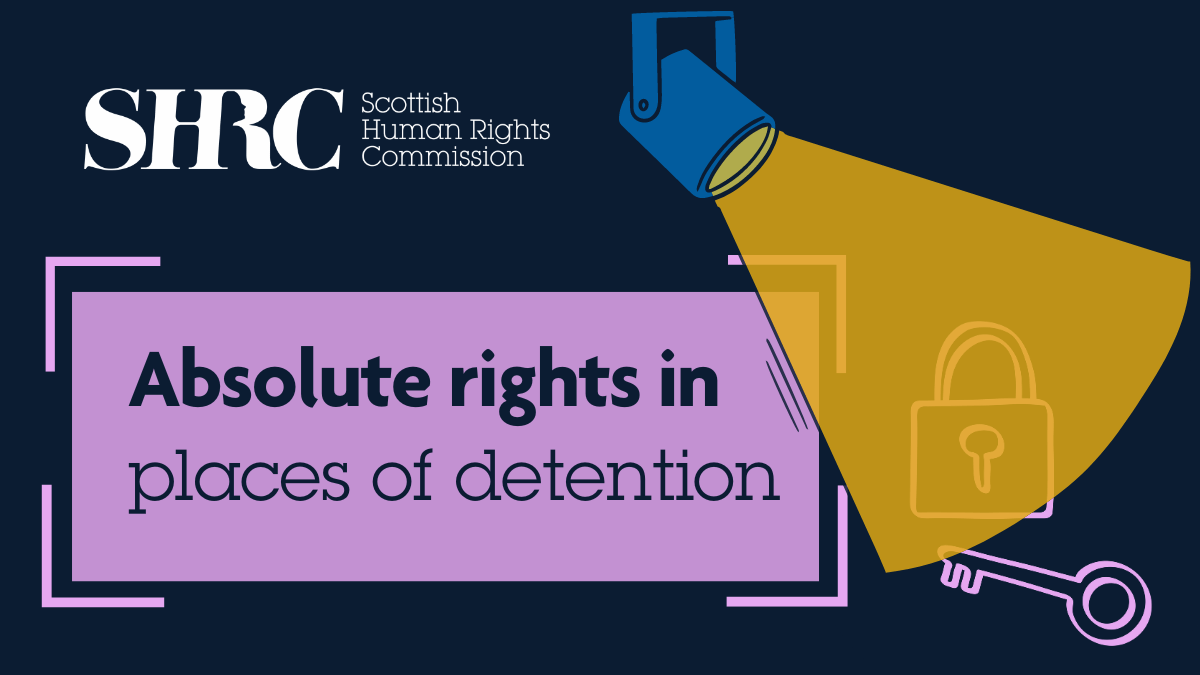BSL
Why we are spotlighting this issue
Absolute rights - such as the right to life and the right to protection from inhuman and degrading treatment - are the most fundamental rights we have, and they must never be breached.
However, international and domestic human rights bodies have found evidence that people in places of detention such as prisons and mental health institutions are experiencing gaps in the protection of these rights which, if left unaddressed, are likely to lead to human rights breaches.
Issues include:
- High numbers of people held on remand and an overcrowded prison estate
- Inadequate provision of mental healthcare
- The use of segregation for long periods of time and for prisoners experiencing mental ill health
- Gaps in the system for investigation of deaths in detention
The European Committee on the Prevention of Torture and several United Nations bodies have made recommendations on how to fix these issues.

Long Description
"Absolute rights must never be breached. There can be no excuse for allowing breaches or failing to act when these rights are at risk." Spotlight shining on a padlock and key.
Long description ends.
What we did
Together with the National Preventative Mechanism (NPM), we created a report which looks at Scotland's progress in meeting the recommendations put forward by human rights bodies to progress protections on absolute rights in places of detention.
The report focuses on two specific places of detention: prisons and the forensic mental health estate.
It also focuses on two specific human rights:
- The right to life, which requires that everyone’s life shall be protected by law. This right is protected by Article 2 of the European Convention on Human Rights and repeated across United Nations (UN) human rights treaties.
- The prohibition of torture and inhuman or degrading treatment or punishment. This right is protected by Article 3 of the European Convention on Human Rights and repeated across UN human rights treaties.
We found an unacceptable level of inaction on most of the outstanding recommendations. Of the 29 recommendations we assessed, 83% had seen little or no meaningful progress to addressing the recommendation. The report covers recommendations made over a ten-year period, to allow us to assess progress over a significant period of time. Some recommendations date back even further, including a recommendation dating back to 2012 concerning levels of overcrowding in prisons.
Have 5 minutes?
Read our Executive Summary - available as an Easy Read, a PDF and an accessible Word document - below. Or watch the report in BSL on our YouTube channel here.
Have more time?
Read the full report below. Available as a PDF and an accessible Word document.

What we will do next
We will use our findings to push for urgent action on outstanding recommendations where progress is too slow. We will share this report with a range of bodies to allow progress to be assessed and tracked over time.
This includes:
- The Criminal Justice Committee of the Scottish Parliament
- Audit Scotland
- The European Committee on the Prevention of Torture
- The Human Rights Committee
- The UN Special Rapporteur on Torture
Together with the National Preventive Mechanism, we will also track progress on these recommendations and any new ones which arise. We intend to measure progress again in four years.
Human rights in this area are explored further in our Access to Justice Spotlight Project, which looks at the human rights complaints process for rights holders in places of detention.
Additionally, human rights in places of detention were identified as a key concern in our Strategic Plan 2024-28, so we will continue our long standing efforts on this programme of work.
More on the project
For further information, contact us on hello@scottishhumanrights.com
Find out about our previous work on human rights in places of detention here.
Media enquiries
For media enquiries about this project, please contact media@scottishhumanrights.com














